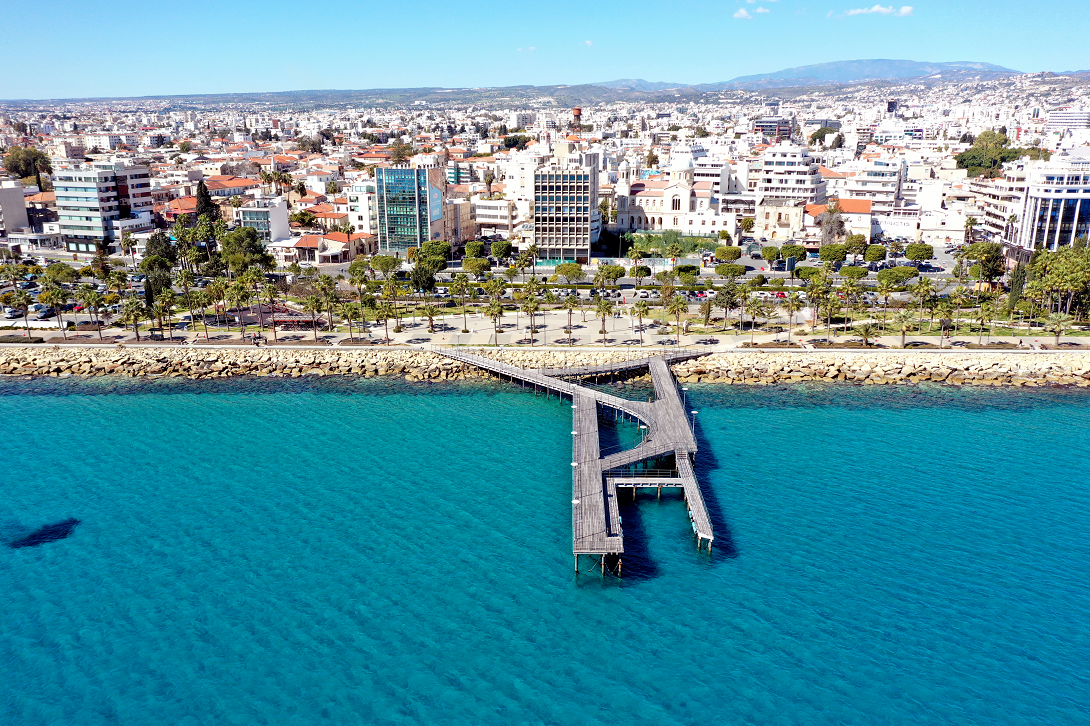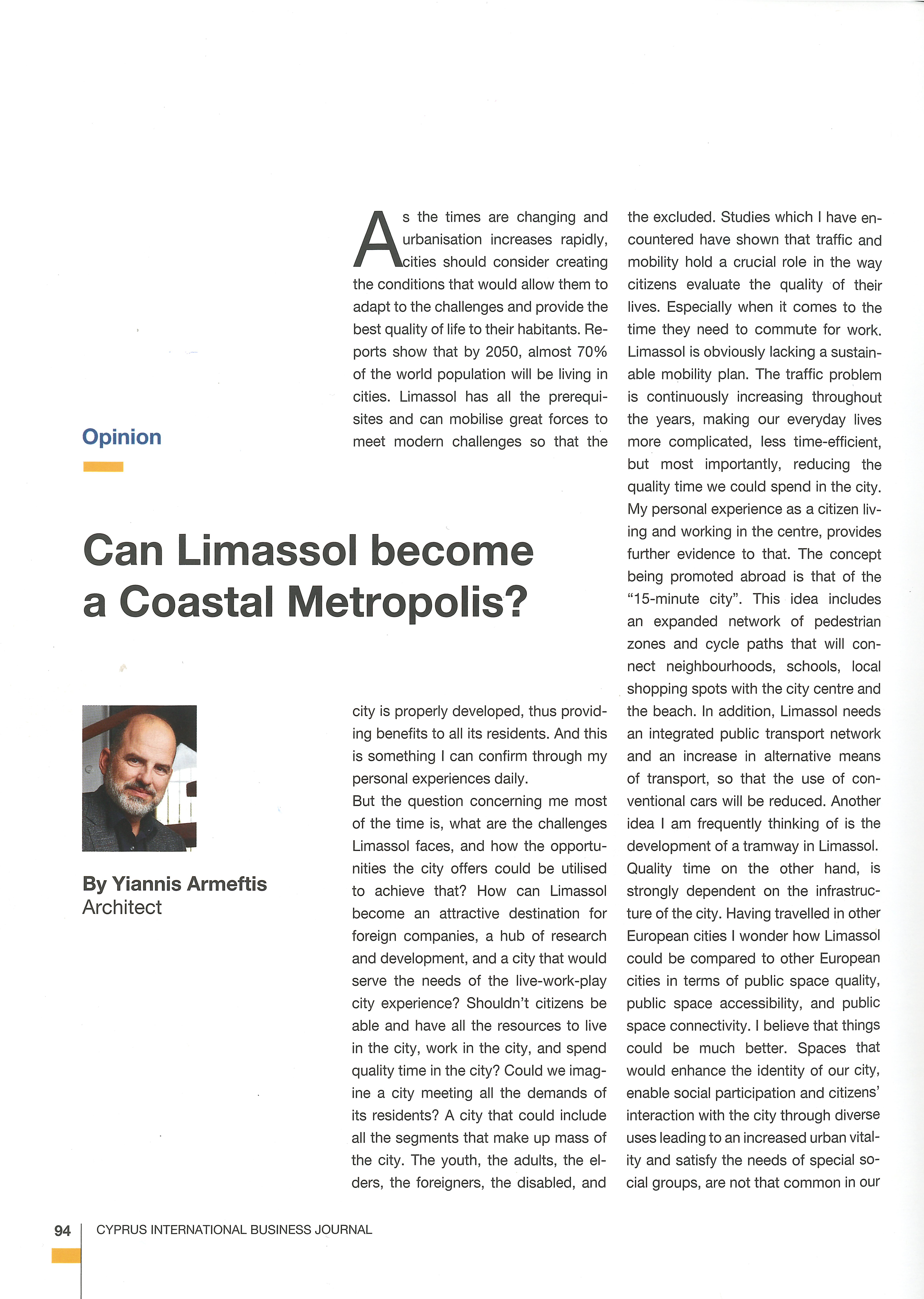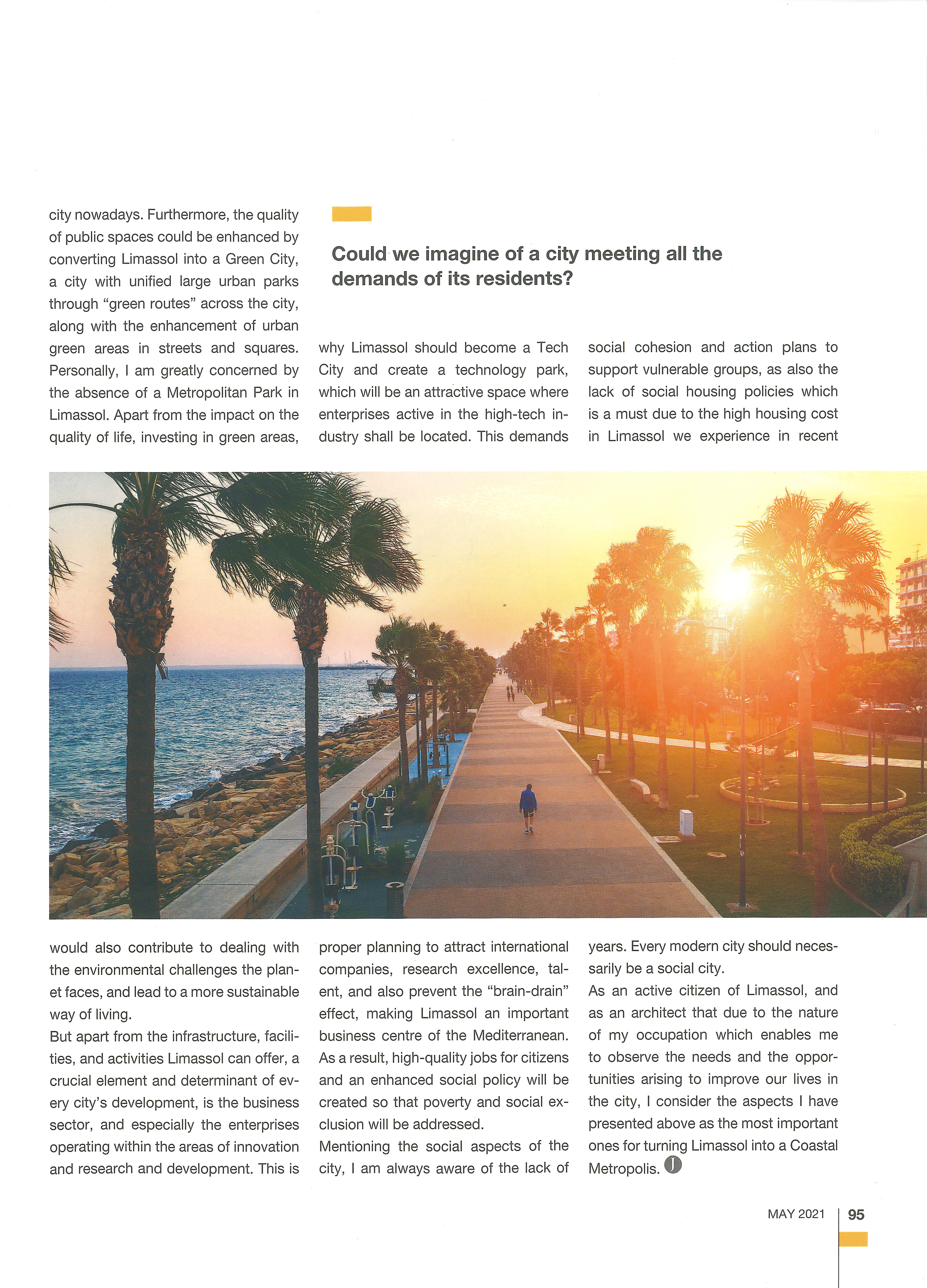Can Limassol become a Coastal Metropolis?
Could we imagine of a city meeting all the demands of its residents?
Article published in the first edition of the Cyprus International Businesses Association official magazine.
As the times are changing and urbanization increases rapidly, cities should consider of creating the conditions that would allow them to adapt to the challenges and provide the best of quality life to their habitants. Reports show that by 2050, almost 70% of the world population will be living in cities. Limassol has all the prerequisites and can mobilize great forces to meet modern challenges so that the city is properly developed, thus providing benefits to all its residents. And this is something I can confirm through my personal experiences daily.
But the question concerning me most of the time is, what are the challenges Limassol faces, and how the opportunities the city offers could be utilized to achieve that? How can Limassol become an attractive destination for foreign companies, a hub of research and development, and a city that would serve the needs of the live-work-play city experience? Shouldn’t citizens be able and have all the resources to live in the city, work in the city, and spend quality time in the city? Could we imagine of a city meeting all the demands of its residents? A city that could include all the segments that consist the mass of the city. The youth, the adults, the elders, the foreigners, the disabled, and the excluded.
Studies which I have encountered have shown that traffic and mobility hold a crucial role in the way citizens are evaluating the quality of their lives. Especially when it comes to the time they need to commute for work. Limassol is obviously lacking a sustainable mobility plan. The traffic problem is continuously increasing throughout the years, making our everyday lives more complicated, less time-efficient, but most importantly, reducing the quality time we could spend in the city. My personal experience as a citizen living and working in the centre, provides further evidence to that. The concept being promoted abroad is the one of the “15-minute city”. This idea includes an expanded network of pedestrian zones and cycle paths that will connect neighbourhoods, schools, local shopping spots with the city center and the beach. In addition, Limassol needs an integrated public transport network and an increase of alternative transport means, so that the use of conventional cars will be reduced. Another idea I am frequently thinking of is the development of a tramway in Limassol.
Quality time on the other hand, is strongly dependent on the infrastructure of the city. Having travelled in other European cities makes me wonder how Limassol could be compared to other European cities in terms of public space quality, public space accessibility, and public space connectivity. I believe that things could be way better. Spaces that would enhance the identity of our city, enable social participation and citizens’ interaction with the city through diverse uses leading to an increased urban vitality, satisfy the needs of special social groups, are not that common in our city nowadays. Furthermore, the quality of public spaces could be enhanced by converting Limassol into a Green City, a city with unified large urban parks through “green routes” across the city, along with the enhancement of urban green areas in streets and squares. Personally, I am greatly concerned by the absence of a Metropolitan Park in Limassol. Apart from the impact on the quality of life, investing into green areas, would also contribute in dealing with the environmental challenges the planet faces, and proceed towards a more sustainable way of living.
But apart from the infrastructure, facilities, and activities Limassol can offer, a crucial element and determinant of every city’s development, is the business sector, and especially the enterprises operating within the areas of innovation and research and development. This is why Limassol should become a Tech City and create a technology park, which will be an attractive space where enterprises active in the high-tech industry shall be located. This demands a proper planning to attract international companies, research excellence, talent, and also prevent the “brain-drain” effect, making Limassol an important business center of the Mediterranean. As a result, high-quality jobs for the citizens will be created, and an enhanced social policy so that poverty and social exclusion will be addressed.
Mentioning the social aspects of the city, I am always aware of the lack of social cohesion and action plans to support vulnerable groups, as also the lack of social housing policies which is a must due to the high housing cost in Limassol we experience during the last years. Every modern city should necessarily be a social city.
As an active citizen of Limassol, and as an architect that due to the nature of my occupation which enables me of observing the needs and the opportunities arising to improve our lives in the city, I consider the aspects I have presented above as the most important ones for turning Limassol into a Coastal Metropolis.




